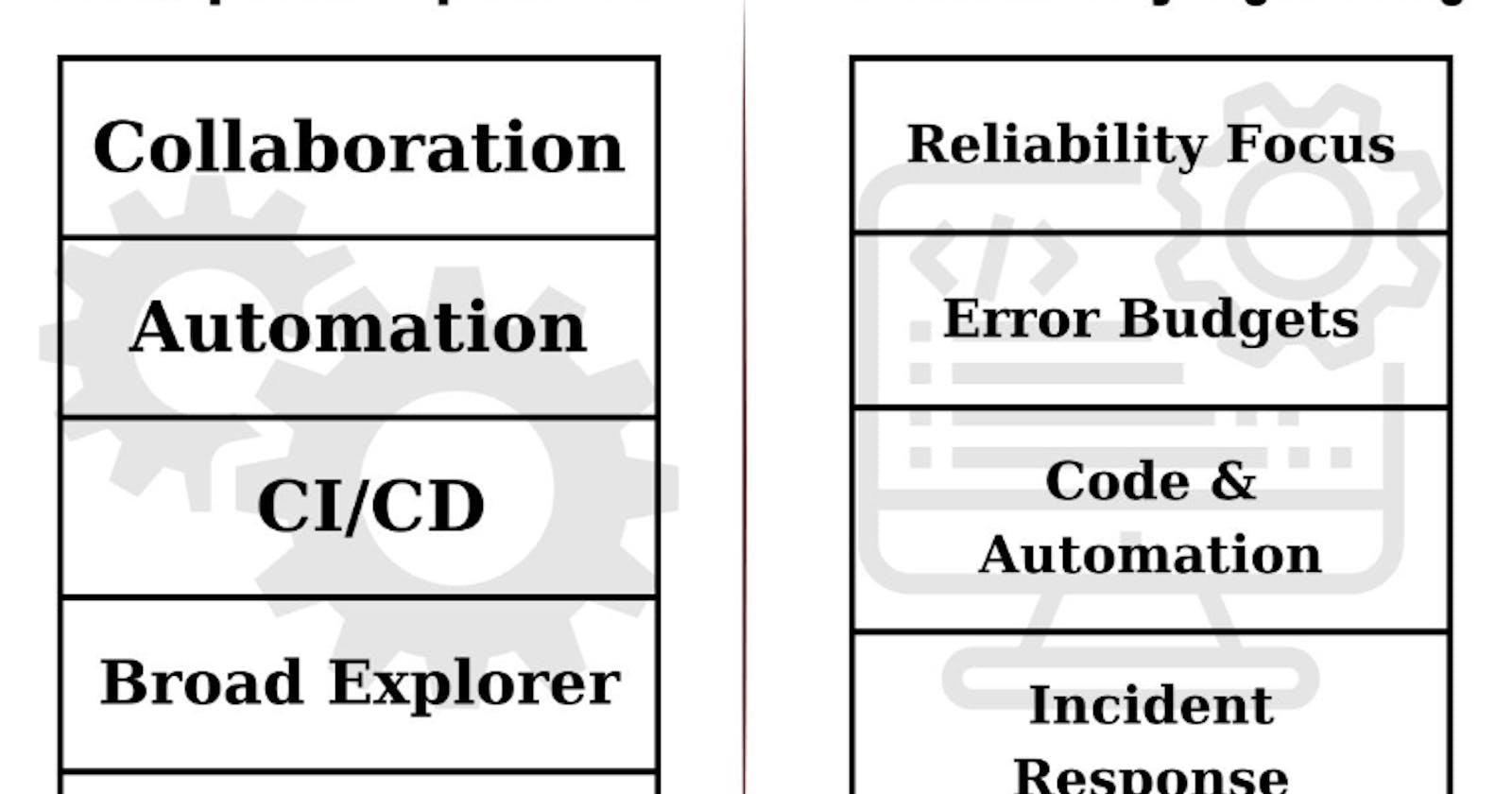Unveiling the Distinction Between DevOps and SRE
In the ever-evolving realm of technology, two terms that frequently surface in discussions are DevOps and Site Reliability Engineering (SRE). While they may seem interchangeable at first glance, there are subtle yet crucial distinctions that set them apart.
DevOps: Bridging the Gap Between Development and Operations
DevOps, short for Development and Operations, is a cultural and collaborative approach that aims to enhance communication and collaboration between software developers and IT operations teams. The primary goal of DevOps is to streamline and automate the end-to-end software delivery process, ensuring faster and more reliable releases.
Key DevOps Principles:
Collaboration: DevOps fosters a culture of collaboration, breaking down silos between development, operations, and other stakeholders.
Automation: Automation is at the core of DevOps, enabling continuous integration, continuous delivery, and rapid deployment.
Feedback Loops: DevOps emphasizes the importance of quick feedback loops to identify and address issues early in the development cycle.
Continuous Improvement: DevOps encourages a continuous improvement mindset, promoting iterative enhancements to processes and workflows.
SRE: Elevating Reliability Through Engineering
Site Reliability Engineering (SRE) is a discipline that originated at Google and focuses specifically on ensuring the reliability and availability of large-scale, complex systems. SRE combines aspects of software engineering with the principles of site reliability to create scalable and highly reliable software systems.
Key SRE Principles:
Service Level Objectives (SLOs): SREs define SLOs to set measurable targets for the reliability of a service, helping teams align their efforts with user expectations.
Automation: Similar to DevOps, automation plays a pivotal role in SRE practices, enabling the management of complex systems with minimal manual intervention.
Error Budgets: SREs work with the concept of error budgets, allowing for a balance between releasing new features and maintaining system reliability.
Toil Reduction: SREs focus on minimizing toil, which refers to repetitive operational tasks, through automation and smart engineering.
Harmonizing DevOps and SRE: A Synergistic Approach
While DevOps and SRE have distinct focuses, they are not mutually exclusive. In fact, they can complement each other seamlessly. DevOps provides the collaborative framework and automation practices necessary for efficient software delivery, while SRE ensures the reliability and resilience of the deployed systems.
In conclusion, DevOps and SRE are not competing methodologies but rather complementary approaches that, when integrated thoughtfully, result in a robust and reliable software delivery pipeline. By understanding the nuances of each, organizations can tailor their practices to achieve both agility and reliability in the dynamic landscape of technology.
